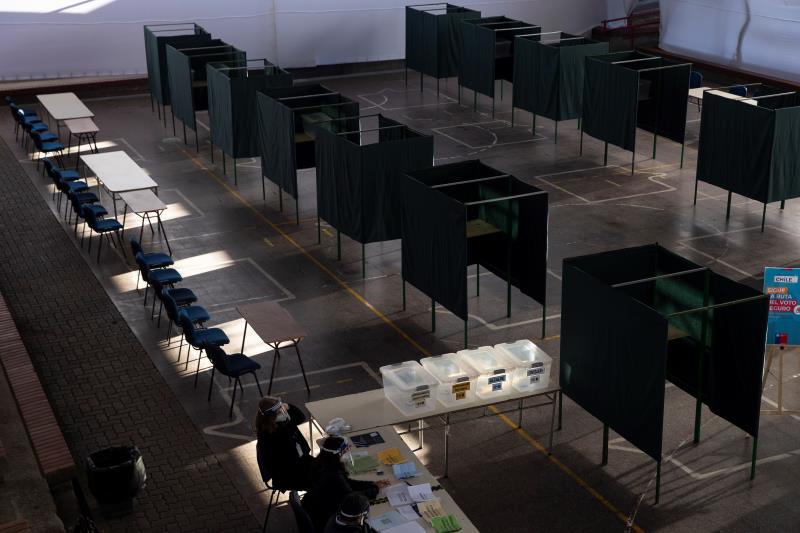RIO DE JANEIRO, BRAZIL – Some experts see the phenomenon of independent candidacies in Chile’s constituent elections as the beginning of a new model of citizen politics and the death certificate for the discredited political parties. Still, its success may be truncated by the dispersion of their proposals and the proportionality in the distribution of votes.
These elections, which will take place next May 15 and 16, will define the 155 members of the convention that will draft the new Magna Carta, a process that emanated from the social protests of October 2019 and obtained a stamp of approval in the plebiscite held last year.

Apart from the 95 candidates who will represent the indigenous peoples (with a reserved quota of 17 seats), those candidates sponsored by a political party are a minority (495) when compared to the independents (793). Experts point to a disaffection of the citizenry towards traditional politics that may bury the party structures in these elections, and open a new form of representation with a more active and direct presence of the people in the future.
“These elections are the death certificate of the most traditional parties, especially those of a more doctrinaire nature. The tendency is to vote for people rather than for parties,” said Jaime Abedrapo, director of the School of Government at the Law School of the Universidad San Sebastián.
On the other hand, the greater presence of political parties in society, their financial muscle for campaigning, and the familiarity of their faces lead other experts to predict a great defeat for the independents at the polls, with very dispersed support in votes that will not translate into seats.
Read also: Five keys for a better understanding of the mega-elections that will define Chile’s future
“We will have to see the level of voting that the total number of independent lists will reach, but the distribution of seats will favor the parties or party lists,” says Octavio Avendaño, an academic at the Faculty of Social Sciences of the University of Chile.
THE OPPORTUNITY OF INDEPENDENTS
Independent candidates respond to diverse sensibilities, from feminism to the environment, including indigenous peoples or advocates of changing Chile’s pension model, and “in no case are they apolitical figures,” Avendaño said.
“Normally these are figures who intend to enter into political activity without having a direct party affiliation, but who intend to develop a type of participation in the public sphere, in this case, to intervene in what is going to be the constituent project,” he commented.
According to the last survey of the Center for Public Studies (CEP), the independents’ great trump card in these elections lies in the historical weakening suffered by political parties, which generate only 2% of confidence in citizens.
“It could be an election in which the parties are the big losers, and that is the great uncertainty: whether the independents will be able to capitalize part of this discontent,” commented Julieta Suárez Cao, a political scientist at the Catholic University.
“These are the first elections that allow lists of independent candidates, and they will mark a before and after, not because this is the cause but because it is a symptom of the crisis of the parties and political clans, which are going to have to reconnect with the citizens,” she added.
A BUBBLE THAT CAN BURST?
The paradoxical thing pointed out by Avendaño is that despite this discredit of the political parties, their collapse is not going to take place. They are even going to obtain greater representation in the constituent convention thanks to the D’Hondt method by which the seats are assigned, because the votes for the independents will be dispersed among a multitude of lists.
In the same line, the political scientist Kenneth Bunker of the Tres Quintos media commented that although the polls show that about 80% of the people favor voting for independent candidates, the traditional politicians are going to outnumber them in seats.
“What is the probability that an independent, without significant funding, will get the votes needed for a seat? It’s low (…) I don’t see that they can have much chance of winning,” Bunker said.
For this reason, he considered that “it is the political parties, because of their machinery and their experience in elections, who can manage to get their candidates in”.
Faced with a scenario in which the independents are left out of the constituent convention or very little represented in it, Bunker wonders what will happen to the candidates who do not manage to win election, and to the social mass that looks forward to this process giving it an eminently citizen aspect, for having its roots planted in the protests of 2019.
“There will be many losers, and knowing what their role will be during the constitutional process that follows will be very important (…) -he indicated-. This may contribute, or not, to a calm constitutional process”.

